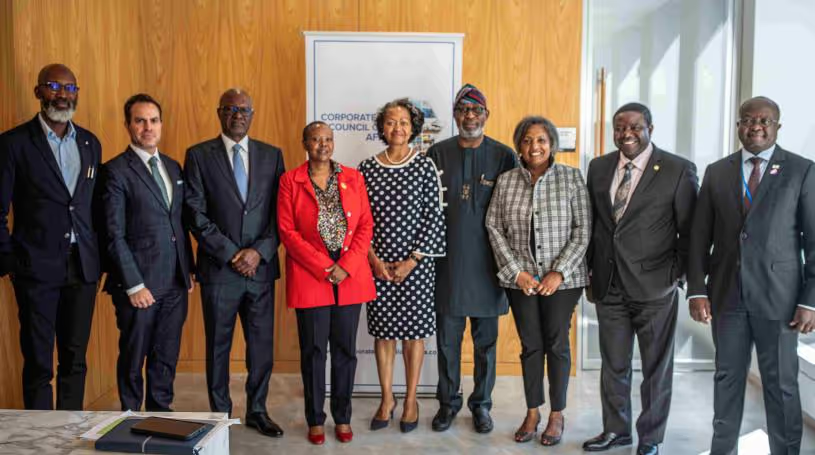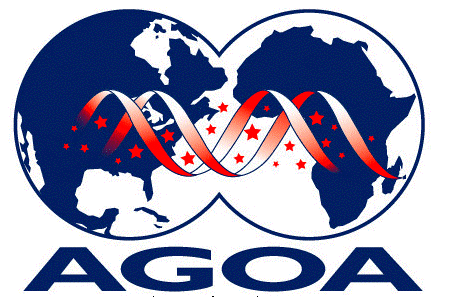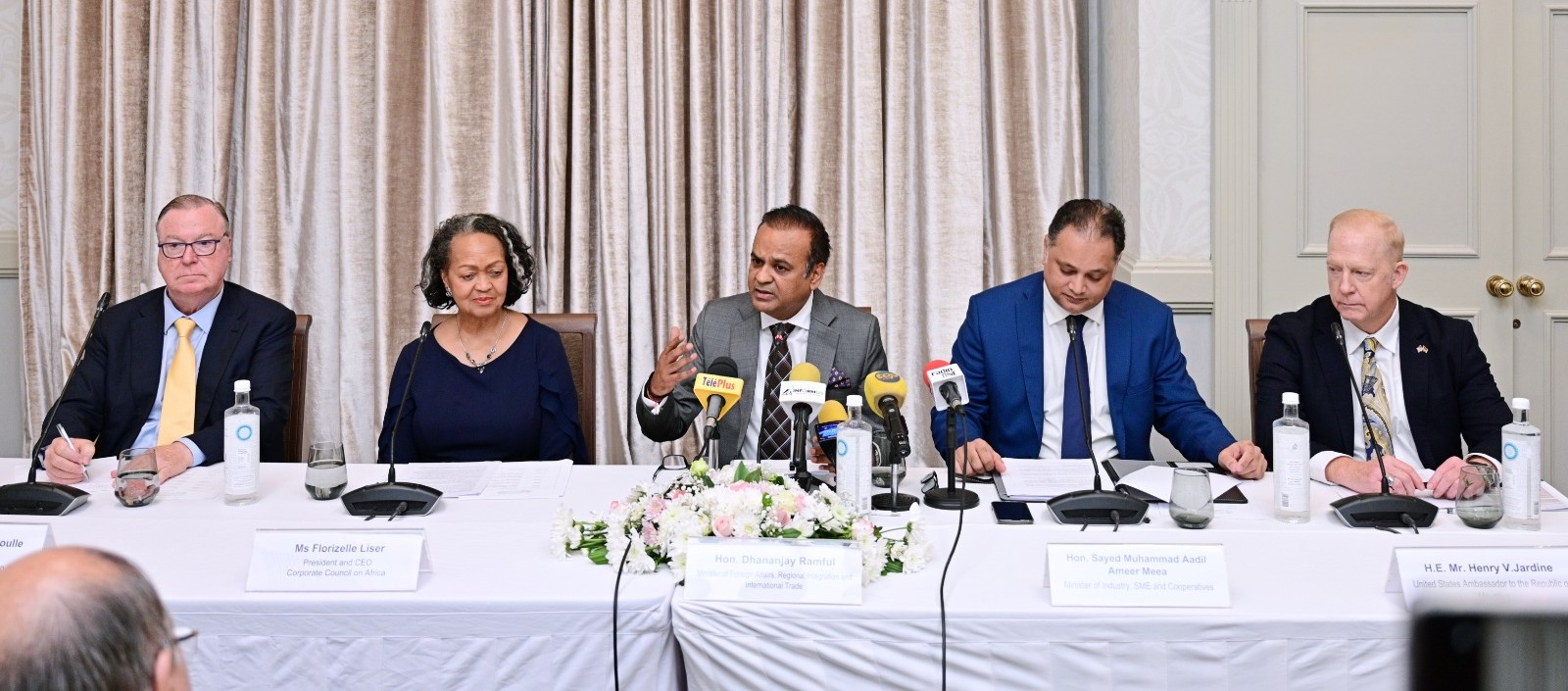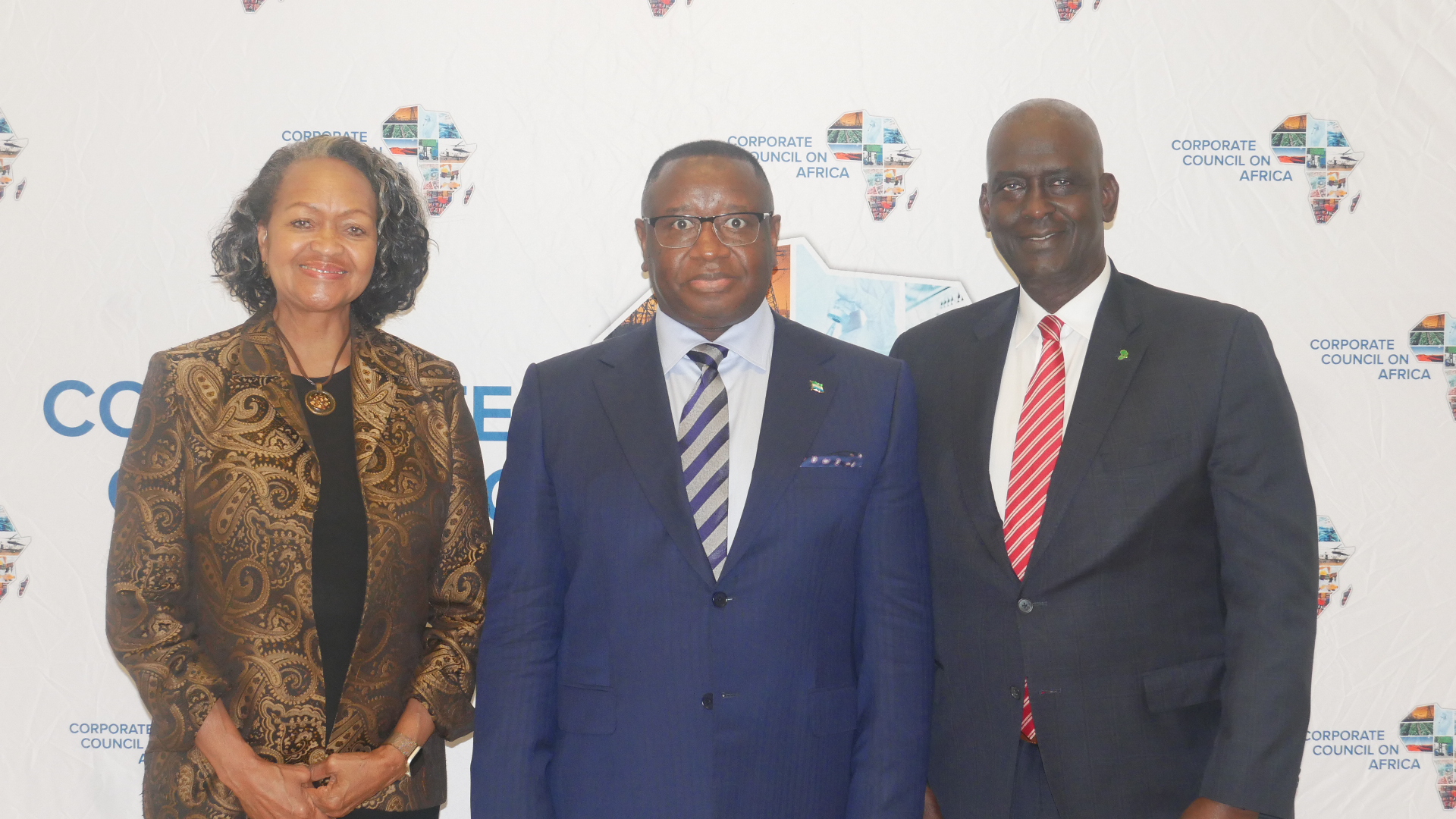From Critical Minerals to Energy Transition: Africa Leading the Way

On Tuesday, September 19, 2023, the Corporate Council hosted an intimate roundtable discussion titled "From Critical Minerals to Energy Transition: Africa Leading the Way" during the 78th United Nations General Assembly in New York City. The session was moderated by Oliver Wright, Partner at DLA Piper, which generously hosted the event.In his opening remarks, Hon. Dele Alake, Minister of Solid Minerals of the Federal Republic of Nigeria sets the stage by highlighting Nigeria's rich deposits, including Zinc, Graphite, and platinum minerals, and the series of policy reforms aimed at attracting and retaining foreign investors. Similarly, Deputy CEO Nisha Biswal of the U.S. International Development Finance Corporation (DFC) emphasized the organization's commitment to Africa and its intent to diversify mining sources due to the increasing impact of climate change on critical priorities like food security, water, and health. The investments in minerals are intended to be more purposeful, ensuring community benefits, such as considering environmental, health, employment factors, and economic impact.H.E. Elsie Sia Kanza, Ambassador of the United Republic of Tanzania to the U.S., shared Tanzania's abundant natural resources, including 24 minerals like manganese and copper and the 5th largest graphite reserve globally. The government's regional policy approach involves partnering to enhance regional manufacturing capacity and value-added initiatives. The Tanzanian Ambassador highlighted the government's commitment to reforms, which have had a positive impact on GDP growth, increasing from 67 billion in 2021 to 85 billion, with improved business infrastructure, including the ongoing construction of a power project set to generate over 2000 megawatts of electricity upon completion.Alexia Latortue, Assistant Secretary of Treasury for International Markets, outlined challenges in the critical minerals space, such as timing mismatches where high demands for minerals clash with the lengthy timelines of new mining projects. She also raised concerns about political risks in extraction and manufacturing, a lack of transparency in trading markets, and profitability issues.Rob Hoenes, Senior Vice President, stressed Caterpillar's consistent support for policies that reduce barriers and underlined the significance of the African Continental Free Trade Agreement (AfCFTA) as a framework with enduring benefits for participating countries, businesses, and populations.The panelists stressed the importance of moving up the value chain and getting away from the model of exporting ores for other countries to process, with several of the countries noting they are already working with the private sector to create long-term projects to develop transitional projects like producing ammonia and green hydrogen to participate in the global energy transition.Given these mismatches, there was broad agreement that it would be helpful to create frameworks to support sustainable investment that would minimize some of these risks, while giving countries greater certainty about future income. There was broad agreement that mining companies, financiers and governments need more discussions like this one to map out the road to a sustainable framework.This roundtable featured senior executives of organizations in the critical mineral value chains, from U.S. and African mining companies to financial institutions, capacity building institutions to trading companies.



